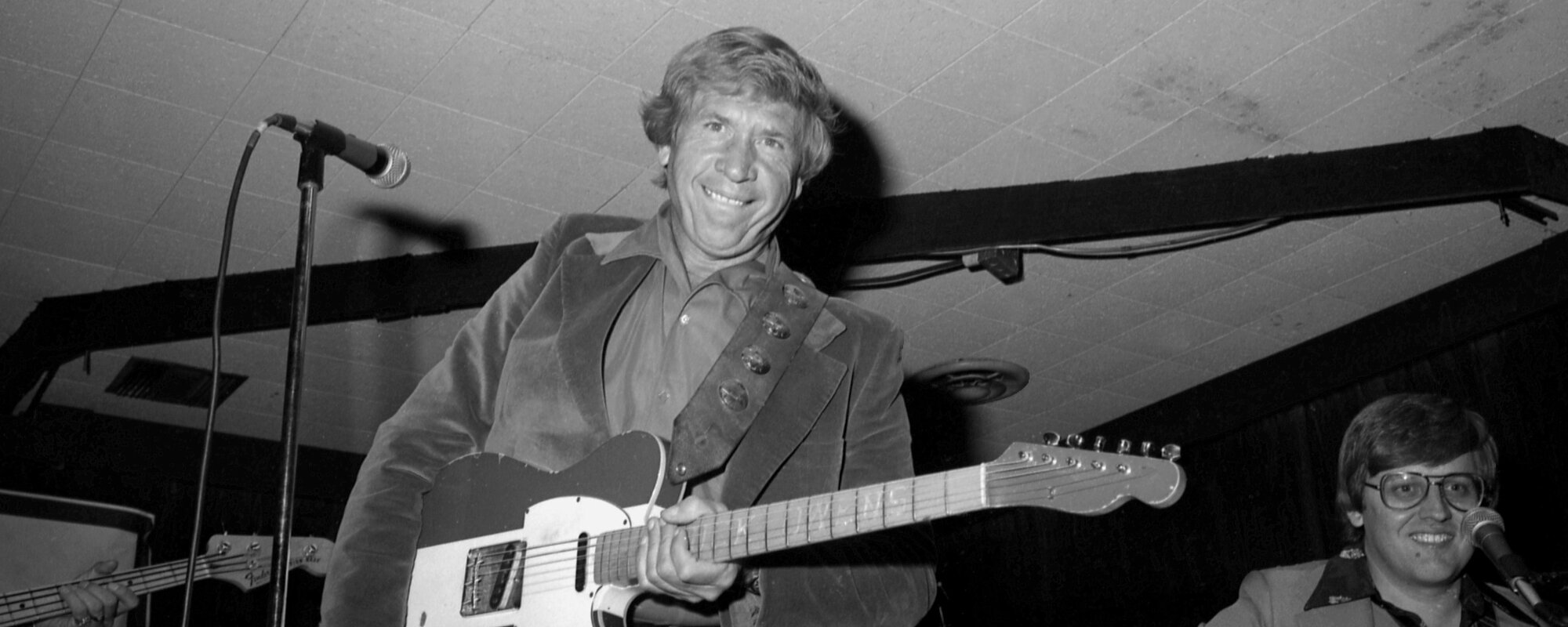While it’s a noble quest to attempt to write an effective anti-war song, it can be exceedingly tricky to pull off. How do you articulate your objections to war without stating the obvious or repeating well-worn platitudes? Elvis Costello found his way around those pitfalls on his classic song “Shipbuilding”. It finds a different way into its anti-war argument from most others of its kind. And it also delivers up a refrain that sums up, in three lines, what he believed to be the inherent folly of armed conflict.
Videos by American Songwriter
The Inspiration
His frustration rising over his diminishing commercial returns, Elvis Costello decided on a different path on his 1983 album Punch The Clock. He hired producers Clive Langer and Alan Winstanley to produce the album based on their track record of pop music success.
The gambit worked to an extent. Costello managed his first-ever US Top 40 hit in “Everyday I Write The Book”. Meanwhile, the album’s standout track was one whose music was written by Langer. Costello simply added the lyrics to the gorgeous, melancholy tune. It was later embellished on the album by the evocative trumpet part played by jazz legend Chet Baker.
Costello took his inspiration for the lyrics from the Falklands War, the brief conflict over the Falkland Islands between Great Britain and Argentina. Robert Wyatt released a version of the song as well, one that became a minor British hit in 1982, a year before Costello’s version on Punch The Clock arrived.
“Building” a Case
“Shipbuilding” presents a philosophical and moral conundrum, one that goes much deeper than most songs about war even attempt. On the one hand, some downtrodden local towns will benefit from the war effort due to the work it will bring. Yet many of those same small burgs will be sending young soldiers into battle, where their lives will be at stake.\
“Is it worth it?” Costello asks in the first line, setting up the debate that will certainly rage amongst the townsfolk. On the one hand, their financial situations will improve a little bit. But is that an even tradeoff for losing a loved one?
To his credit, Costello mostly doesn’t take sides in the song. He portrays the townspeople defending themselves with a shrug: “It’s all we’re skilled in.” But he also lays bare the equivalency that’s being settled upon here. “Within weeks they’ll be reopening the shipyards/And notifying the next of kin.”
“Pearls” of Wisdom
“Shipbuilding” would have been a classic even if it had only gone that far. But then Costello delivers the coup de grace, a refrain that hauntingly echoes throughout the proceedings: “With all the will in the world/Diving for dear life/When we could be diving for pearls.”
In these moments, he zooms out from this small town to take a global view. The “we” here represents the entire human race. Instead of reveling in the joys of togetherness and kinship, we bash against each other and cause limitless suffering.
“Shipbuilding” stands out from much of the Elvis Costello catalog in terms of the concise nature of its lyrics. But honestly, why write anything more? After all, those crucial three lines so elegantly and heartbreakingly sum up his stance.
Photo by Gie Knaeps/Getty Images












Leave a Reply
Only members can comment. Become a member. Already a member? Log in.